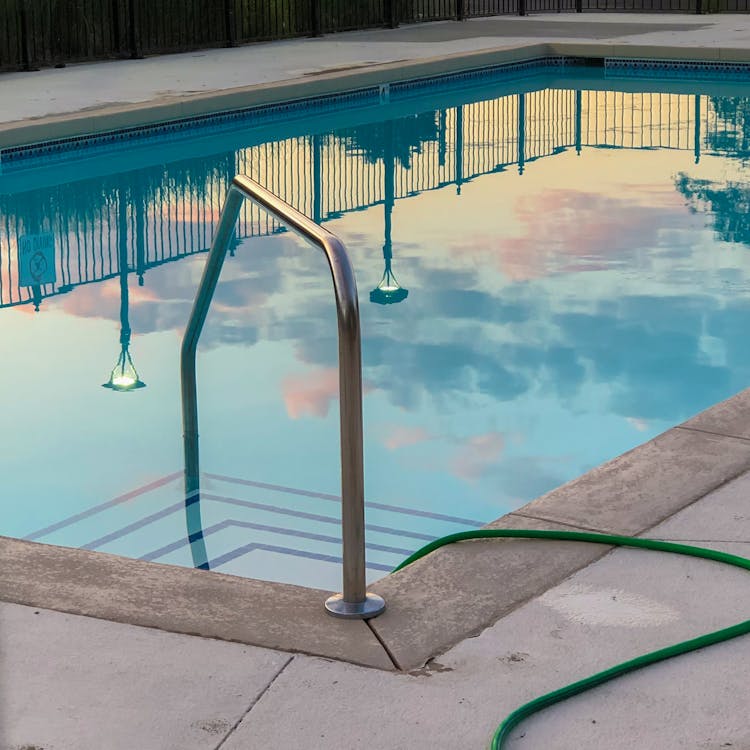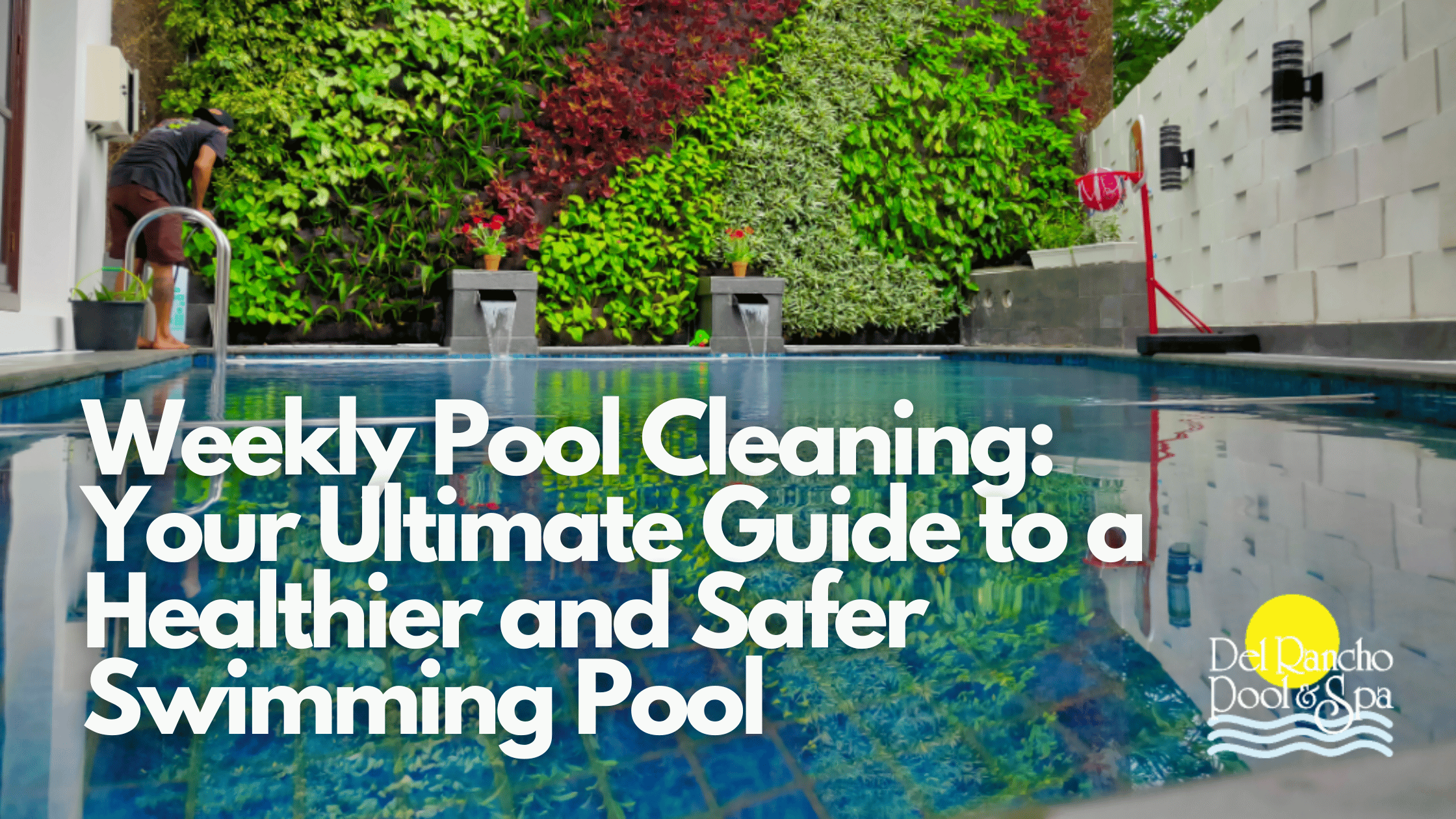If you own a swimming pool, then you know that it provides endless hours of fun and relaxation. However, owning a pool also requires regular maintenance to keep it clean, healthy, and safe. Weekly pool cleaning is an essential task that every pool owner should perform to ensure optimal pool conditions. In this guide, we’ll discuss the importance of weekly pool cleaning, how to determine the frequency of cleaning, essential pool cleaning supplies, steps for cleaning, troubleshooting pool problems, the benefits of hiring a professional pool cleaner, and FAQs.
Importance of Weekly Pool Cleaning
Weekly pool cleaning is vital for several reasons. Firstly, it ensures the health and safety of swimmers. A dirty pool can harbor harmful bacteria, viruses, and other microorganisms that can cause illnesses, such as diarrhoea, skin infections, and respiratory problems. By cleaning your pool weekly, you can reduce the risk of these health issues and maintain a safe swimming environment.
Secondly, weekly pool cleaning improves the water quality of your pool. Over time, debris, leaves, bugs, and other contaminants can accumulate in your pool, making the water cloudy and uninviting. Weekly cleaning removes these impurities and keeps your pool water crystal clear.
Lastly, weekly pool cleaning can extend the lifespan of your pool equipment. Dirty water can damage your pool’s pump, filter, and other equipment by clogging or corroding them. By keeping your pool clean, you can prevent premature equipment failure and save money on repairs and replacements.

Determining the Frequency of Pool Cleaning
Determining how often you should clean your pool depends on several factors, such as weather conditions, usage, and pool size. In general, most pools require weekly cleaning to maintain optimal conditions. However, if your pool is located in an area with high winds, frequent storms, or lots of trees, you may need to clean it more often.
Additionally, if your pool sees heavy usage, such as hosting pool parties or having many swimmers, you may need to clean it more frequently. Finally, larger pools may require more cleaning time and effort than smaller ones.
To determine the best cleaning schedule for your pool, you can use a pool maintenance chart or consult with a professional pool cleaner. They can advise you on the optimal cleaning frequency based on your pool’s specific conditions.

Essential Pool Cleaning Supplies
To perform weekly pool cleaning, you’ll need several essential pool cleaning supplies. These include a skimmer net, pool brush, vacuum, and chemicals.
- Skimmer net: Use a skimmer net to remove debris, leaves, and bugs from the surface of the pool. It’s essential to use this tool before brushing or vacuuming the pool to prevent debris from settling on the bottom.
- Pool brush: A pool brush is used to scrub the walls, steps, and floor of the pool to remove algae and other build-up. It’s essential to use a brush with stiff bristles to ensure effective cleaning.
- Vacuum: Use a pool vacuum to remove dirt and debris from the bottom of the pool. There are several types of pool vacuums, including manual, automatic, and robotic. Choose the one that works best for your pool.
- Chemicals: Use pool chemicals to sanitize, balance, and clarify the water. These include chlorine, pH adjusters, algaecides, and shock treatments. It’s crucial to use the right chemicals in the correct amounts to maintain proper water chemistry.
It’s also essential to follow safety precautions when handling pool chemicals. Wear gloves and goggles and keep chemicals out of reach of children and pets.
Steps for Weekly Pool Cleaning
Performing weekly pool cleaning involves several steps. Follow these steps to ensure optimal pool conditions:
- Skim the surface of the pool: Use a skimmer net to remove debris, leaves, and bugs from the surface of the pool.
- Brush the walls and floor: Use a pool brush to scrub the walls, steps, and floor of the pool to remove algae and other build-up.
- Vacuum the pool: Use a pool vacuum to remove dirt and debris from the bottom of the pool.
- Check chemical levels: Use a pool test kit to check the chemical levels of your pool water. Adjust the levels as necessary to maintain proper water chemistry.
- Shock the pool: If necessary, use a shock treatment to kill bacteria and other microorganisms in the water.
Performing these steps weekly can help maintain optimal pool conditions and ensure the health and safety of swimmers.
Troubleshooting Pool Problems
Despite regular pool cleaning, problems can still arise. Here are some common pool problems and how to troubleshoot and solve them:
- Cloudy water: Cloudy water can be caused by poor water chemistry, high levels of contaminants, or poor filtration. To solve this problem, check and adjust the chemical levels, shock your pool, and clean or replace your filter.
- Algae growth: Algae can grow in your pool due to poor water circulation, inadequate sanitation, or high temperatures. To solve this problem, use an algaecide and shock your pool.
- pH imbalances: pH imbalances can cause skin irritation, eye irritation, and equipment damage. To solve this problem, use a pH adjuster to balance the water.
Benefits of Hiring a Professional Pool Cleaner
While weekly pool cleaning can be performed by pool owners, hiring a professional pool cleaner has several benefits. Firstly, it saves time and effort. If you have a busy schedule or don’t enjoy cleaning your pool, a professional pool cleaner can handle the task for you.
Secondly, a professional pool cleaner has the expertise and equipment to perform thorough cleaning and maintenance. They can detect and solve problems before they become major issues, ensuring optimal pool conditions.
To find a reputable pool cleaning service, ask for recommendations from friends and family, check online reviews, and ask for proof of insurance and licensing.
| Item | Description |
|---|---|
| Skimmer net | A net used to remove debris, leaves, and bugs from the pool’s surface. |
| Pool brush | A brush with stiff bristles used to scrub the walls, steps, and floor of the pool to remove algae and other build-up. |
| Pool vacuum | A tool used to remove dirt and debris from the bottom of the pool. |
| Chemicals | Sanitizing, balancing, and clarifying agents used to maintain proper water chemistry. These include chlorine, pH adjusters, algaecides, and shock treatments. |
| Pool test kit | A kit used to test the chemical levels of pool water. |
| Algaecide | A chemical used to kill and prevent algae growth. |
| Shock treatment | A chemical used to kill bacteria and other microorganisms in the water. |
| pH adjuster | A chemical used to balance the water’s pH levels. |
FAQs
Here are some common questions related to weekly pool cleaning:
How long does it take to clean a pool weekly?
On average, it takes 1-2 hours to clean a pool weekly, but the time it takes to clean a pool depends on several factors, such as pool size, debris accumulation, and cleaning equipment.
Can I use household cleaning products to clean my pool?
No, household cleaning products are not suitable for pool cleaning. They can damage your pool’s surface and alter the water chemistry, leading to health and safety risks.
Conclusion
Weekly pool cleaning is an essential task that every pool owner should perform to ensure optimal pool conditions. By following the steps outlined in this guide, you can maintain a clean, healthy, and safe swimming pool. Remember to prioritize pool maintenance to ensure maximum enjoyment and safety.
Insider Tip: To keep your pool clean and healthy, make sure to clean your pool filter regularly. A clogged filter can reduce the effectiveness of your pool’s cleaning system.
As a pool owner, performing weekly pool cleaning is essential for maintaining a healthy and safe swimming experience. By following the guidelines outlined in this article, you can ensure that your pool remains free of harmful bacteria, debris, and other contaminants. Regular pool cleaning also helps extend the lifespan of your pool equipment, saving you time and money in the long run. Don’t forget to consult with a professional pool cleaner or use a pool maintenance chart to determine the optimal cleaning frequency for your pool. With proper care and maintenance, you can enjoy endless hours of fun and relaxation in your backyard oasis.
